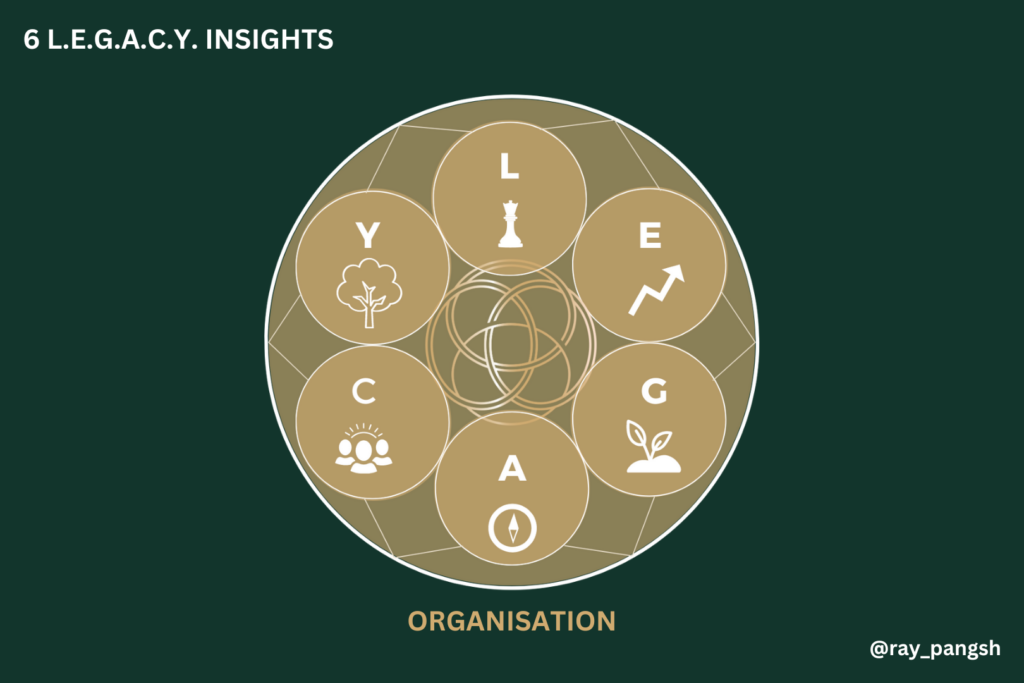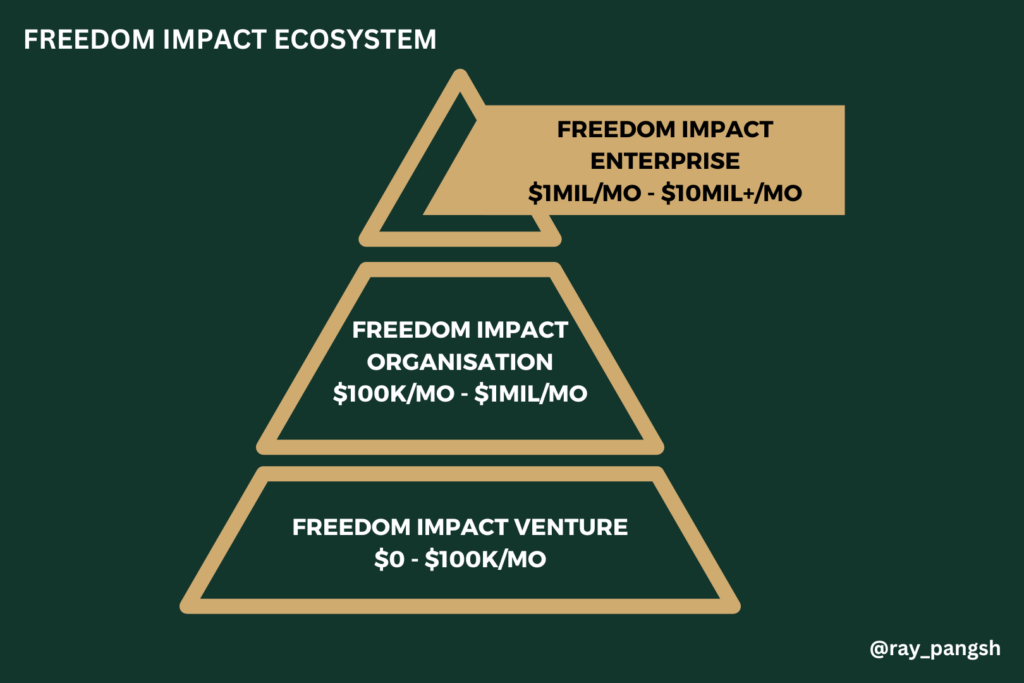Network Like a Pro
7 Tips to Becoming a Successful Networker
Making yourself more memorable means you’ll have a better chance of making connections

Corporate events have long been regarded as an important tool for broadening professional networks and expanding business. Yet it’s tough to stand out from the crowd when it comes to networking at these events. You’re not the only one at the event, which means you’re competing for attention with other attendees who are also trying to make a splash.
The good news is that even at crowded conventions, workshops, fundraisers, and seminars, you can put your best foot forward. Try the following suggestions to give yourself a powerful competitive advantage. Whether you are a seasoned professional or new to your field, these tips will help you maximize the benefits of attending corporate events.
1. Mingle, don’t linger.
You have a limited amount of time to meet and greet at events. Make the most of it by engaging in as many conversations as possible. The goal? Don’t spend more than five minutes talking to any one person. Keep the conversation light and continuous, ensuring you listen more than you talk.
What if the discussion is riveting? Wonderful! Explain that you’d like to talk further and exchange contact information. Carrying a business card with a QR code makes sharing names, numbers, and emails simple. It’s much better to end a dialogue too early than to wear out your welcome.
2. Do your research.
If you know the names of the other attendees, you’re in a prime position to make real networking strides. Set aside a couple of hours to scour LinkedIn and scribble notes. This could give you a reason to approach a specific individual or group.
Let’s say one of the guest speakers recently received a few coveted awards. You could use that fact as a springboard for discussion. For instance, you could say, “I heard you received an award for your sales numbers this year. Congratulations! Can you share any selling tips with me?”
3. Lead with compliments.
Sincere compliments allow you to approach strangers and feel less awkward. While you don’t want to go around showering everyone you see with kind words, you can make life easier by handing out strategic compliments.
To avoid sounding too personal, you should avoid complimenting a person’s physical appearance. Clothing and accessories are safe to mention, but not facial features. Try saying, “I like your tie.” or “Is that the newest iPhone?” You want to sound genuine, not like a pickup artist.
4. Avoid hard selling.
Don’t talk shop unless you’re at a sales event where the point is to exchange leads and referrals. Only ask for meetings at professional events. It’s fine to gather contact information so you can follow up later. (You should follow up with everyone within 48 hours.) However, you don’t want to be too aggressive.
Pushing too hard can be incredibly distasteful to well-known guests. Case in point: If a keynote speaker talks about writing a book, resist asking him to recommend a publishing house or read your work in progress. It’s bad form and doesn’t present you in the best light.
5. Limit your alcohol consumption.
Many corporate events have open bars or are held at places where you can buy alcohol. While you might feel more comfortable talking to people after having a drink or two, think twice. People have made judgment errors after drinking alcoholic beverages before. This doesn’t mean you can’t have a glass of wine, a bottle of beer, or a cocktail.
Just sip slowly and consume one drink or less per hour. You can also wait until after the event to kick back and relax at home. You don’t want to miss out on networking opportunities while you drink.
6. Act as a connector.
Want to know a networking trick? Try to connect as many people as possible at events. Every time you meet someone new, remember their name. As you meet others, aim to direct them toward people you’ve previously encountered.
For instance, if you meet someone interested in a specific topic, you can direct them to someone who’s written about that topic. Being the person who brings others together nets you an excellent reputation and even more networking opportunities.
7. Dress for the occasion.
Finally, take time to look presentable. Even if your event is online, dress well. Do your hair, steam your suit, etc. There’s no need to go overboard, but you want to avoid looking too casual.
As a side benefit, dressing well will help you feel confident. You can ride the psychological boost of looking your best from beginning to end.
Whether you’re networking online or in person, you want to make a good first impression. Making yourself more memorable means you’ll have a better chance of making connections at your next networking experience. A little time and effort could make sure you look back on your next event as a win.
Change Your Mindset
The 6 L.E.G.A.C.Y. Insights: Building A Holistic Approach To Business

In the complex and rapidly evolving landscape of modern business, innovative models are the need of the hour to navigate challenges and maintain sustainable growth. Inspired by the metaphor of the ‘Earth as a Cosmic Playground’, the LEGACY Impact System has emerged as a beacon of guidance, interconnecting six crucial business elements to create a comprehensive roadmap towards sustainable success.
LEADERSHIP – Conscious Leadership
Simon Sinek, a world-renowned optimist and visionary, once stated, “Leadership is not about being in charge. It is about taking care of those in your charge.” Conscious leadership embodies this principle, prioritising awareness of the broader implications and ripple effects of decisions on the organisation, its stakeholders, and the environment.
Action Steps:
- Leadership Training: One of the foundational steps towards conscious leadership is investing in leadership development programs that highlight ethical decision-making, environmental stewardship, and social responsibility. These training programs should encompass elements such as emotional intelligence, transparency, empathy, and long-term thinking, equipping leaders to guide their teams towards sustainable growth.
- Stakeholder Engagement: Conscious leaders also emphasise consistent and open dialogue with stakeholders. By incorporating stakeholders’ insights into decision-making processes, leaders can ensure they’re addressing the needs and concerns of those impacted by the organisation’s operations.
EVOLUTION – Adaptability
Like the ever-evolving cosmos, businesses must be capable of change and evolution. Albert Einstein’s wisdom encapsulates this requirement: “The measure of intelligence is the ability to change.” In the fast-paced business world, adaptability becomes an essential survival trait, fostering resilience and agility.
Action Steps:
- Innovation Encouragement: Businesses can nurture adaptability by creating an environment that celebrates innovation, rewards creative problem-solving, and supports calculated risk-taking. This could involve implementing an open-door policy for ideas, organising brainstorming sessions, or establishing an innovation hub within the organisation.
- Technology Integration: Keeping abreast of technological advancements and incorporating them into business processes is another critical step. This proactive approach not only optimises operations but also positions the organisation as a forward-thinking player in the industry.
GROWTH – Continuous Learning and Development
Motivational speaker and writer Leo Buscaglia said, “Change is the end result of all true learning.” In the realm of business, this translates into the equation ‘continuous learning equals continuous growth’. Organisations that champion a culture of ongoing learning and development are well-positioned to thrive.
Action Steps:
- Employee Training: Regular training and development opportunities should be provided to employees to update their skills and stay abreast of industry trends. This can range from skills-based workshops and webinars to providing resources for self-learning and personal development.
- Learning Culture: Promoting a culture that values learning and improvement at all levels of the organisation is crucial. This can be achieved by recognising and rewarding learning initiatives, encouraging feedback, and fostering an atmosphere of open communication.
ALIGNMENT – Holistic Approach to Business and Value-Based Marketing
Renowned systems scientist Peter Senge stated, “Alignment is the prerequisite for effectiveness.” Taking inspiration from the cosmos, where every element is harmoniously aligned, businesses should ensure all aspects of their operations align with their core mission and values.
Action Steps:
- Internal Alignment: To ensure coherence between what a business says and does, internal processes, practices, and culture should reflect the organisation’s mission and values. This includes aligning recruitment and management practices, employee benefits, and internal communication with the organisation’s core ethos.
- External Alignment: Similarly, marketing, customer service, and branding strategies should resonate with the organisation’s values. Authentic alignment in these areas fosters trust among stakeholders and differentiates the business in a competitive marketplace.
Ready to Learn to Unlock The Power of Emotional Intelligence and Win More Clients?
COMMUNITY – Community Building
Civil rights activist Coretta Scott King once stated, “The greatness of a community is most accurately measured by the compassionate actions of its members.” This statement holds significant relevance for modern businesses, underlining the importance of community-building among stakeholders.
Action Steps:
- Stakeholder Inclusion: Businesses can foster community by including stakeholders in decision-making processes, fostering a sense of ownership and engagement. This can be facilitated through town-hall meetings, feedback sessions, and collaborative projects.
- Engagement Initiatives: Launching initiatives that promote interaction and collaboration among stakeholders can further strengthen community bonds. These initiatives can range from team-building activities and social events to forums for sharing ideas and challenges.
YIELD – Sustainability and Technology Integration
Danish architect Bjarke Ingels pointed out that sustainability should not be viewed as a sacrifice but as a design challenge. Businesses, similarly, should see sustainability as an essential aspect of their design and operational strategies, not as an afterthought.
Action Steps:
- Sustainable Practices: By incorporating sustainability into every facet of business operations, from product design and manufacturing to supply chain management and waste disposal, businesses can make a positive impact on the environment and society.
- Tech-driven Sustainability: Technology offers a myriad of ways to enhance sustainability. By harnessing technology to optimise resource use, reduce energy consumption, or streamline processes, businesses can demonstrate their commitment to sustainable practices.

In conclusion, the 6 L.E.G.A.C.Y. Insights offer a holistic and actionable guide for businesses looking to navigate the complexities of today’s dynamic business landscape. By integrating conscious leadership, adaptability, continuous learning and development, alignment, community building, and sustainability into their day-to-day operations, organisations can achieve sustainable growth and contribute positively to the larger cosmic playground.
Ray Pang SH has generated over USD$1.216mil for his business using the Transformational Sales Methods he discussed above and in his other articles on A2S.
Want to work with him and become one of the 125+ business owners he has helped generate over USD$12.164mil in sales for? Go to his Instagram here and DM him the word “LEGACY” to learn how he can revolutionise your business now.
Want to Master Sales? Find out what it takes for you to become a master salesman
Change Your Mindset
The Global Freedom Initiative: Revolutionising freedom, legacy, and impact

In our hyper-connected era, the interpretation of concepts like freedom, truth, and self-expression bear profound implications. Amidst a symphony of diverse viewpoints, a revolutionary philosophy has crystallised, offering a distinctive compass to traverse the intricate labyrinth of human existence — The Global Freedom Initiative. This initiative isn’t merely a collage of thoughts; it’s a rallying cry for a paradigm shift, recognising the deep interconnection of life and promoting a world filled with limitless freedom, infinite love, and genuine self-expression.
In a world marred by conflict, ecological decay, and societal disparity, the mission of the Global Freedom Initiative rings louder than ever. By nurturing a global tribe dedicated to human evolution, the initiative envisions a world where Unconditional Love serves as the default emotional state.
Cultivating World-Changers
The heart of the Global Freedom Initiative beats in transcending conventional notions of business, wealth, and personal development. It strives to foster a dynamic Freedom Impact Ecosystem, merging individuals and businesses in a unified quest for a world that celebrates authenticity, where love is unbounded, and freedom is an innate right. These philosophy anchors on the ‘Creator Being’ concept, recognising our capacity to shape reality and influence our surroundings.
As the esteemed physicist Albert Einstein once stated, “Imagination is everything. It is the preview of life’s coming attractions.” This potent quote encapsulates the essence of a ‘Creator Being’ – an individual whose thoughts, intentions, and actions have the power to shape their reality and impact their environment. This acknowledgment of our inherent creative potential is the bedrock of the Global Freedom Initiative.
The Quest for True Freedom
A 2020 Pew Research Center survey revealed that nearly 60% of adults worldwide expressed dissatisfaction with their country’s current state, hinting at a global thirst for transformation. The Global Freedom Initiative quenches this thirst by presenting an evolutionary journey starting with self-awareness cultivation and climaxing in ‘True Freedom’ – a state of existence that embraces the human experience unencumbered by repression, resistance, and rejection.
Negative emotions like shame, guilt, fear, and anger often inhibit personal and societal evolution. Brene Brown, a research professor at the University of Houston, wisely noted, “Shame corrodes the very part of us that believes we are capable of change.” The Global Freedom Initiative proposes a transformative response to these emotions, advocating for their acknowledgment, processing, and release to foster personal liberation and nurture a more empathetic and inclusive society.
Reimagining Business as a Catalyst for True Freedom
The Global Freedom Initiative underscores the reframing of business as a conduit for social impact and personal legacy. It proposes a radical shift in our perception of business, presenting it not merely as a profit-oriented entity but as a potent platform for societal evolution and personal self-expression. This perspective dovetails with the rising trend of impact investing. According to the Global Impact Investing Network, impact investing assets amounted to $715 billion in 2020, signalling an increasing recognition of the role businesses can play in steering societal transformation.
To support The Global Freedom Initiative, we must appreciate the significance of individual, owner, and investor contributions to the business sphere. Business is an outward reflection of our inner quest, our mission of Truth, mirroring our fullest expression of Self in driving change and impacting the world.
For a business to be sustainable and impactful, it must satisfy two primary pillars:
- A business should drive social impact and contribute to societal evolution, for the Greater Good Of All
- A business should have the necessary structure for one’s LEGACY and Truth to flow within, as this impact will voice your inner Truth mission to change the world
This defines a Freedom Impact Business.
Three tiers contribute to a Freedom Impact Ecosystem:
- $0 – $100k/mo (Freedom Impact Venture)
- $100k/mo – $1mil/mo (Freedom Impact Organisation)
- $1mil/mo – $10mil+/mo (Freedom Impact Enterprise)

Moreover, the Global Freedom Initiative rethinks the definition of business success. It posits that a truly prosperous business drives economic growth, contributes positively to society, and facilitates personal growth. This perspective aligns with a McKinsey & Company study, suggesting that long-term performance-focused companies demonstrate superior financial outcomes while contributing to societal well-being.
Charting the Future: What Does This Mean For You?
At the core of the Global Freedom Initiative is the conviction that personal growth and societal evolution are inherently linked. As we progress towards personal freedom, we indirectly contribute to societal transformation. This philosophy resonates with the wisdom of celebrated philosopher and writer, Aldous Huxley, who stated, “There is only one corner of the universe you can be certain of improving, and that’s your own self.”
The Coaching / Consulting Industry plays an instrumental role in the Global Freedom Initiative, bridging the gap between traditional education and a more holistic approach encompassing body, mind, and spirit. This aligns with the United Nations’ Sustainable Development Goal 4, advocating for “inclusive and equitable quality education and lifelong learning opportunities for all.”
Ultimately, the Global Freedom Initiative underscores the power of community and collective action. It believes that each one of us can contribute to a world where freedom, love, and authenticity are paramount. This community-oriented approach resonates with Margaret Mead’s wisdom, a renowned anthropologist, who famously stated, “Never doubt that a small group of thoughtful, committed citizens can change the world; indeed, it’s the only thing that ever has.”
In conclusion, the Global Freedom Initiative offers a transformative philosophy responding to the profound call for societal transformation and personal growth. It champions the creation of a world where every individual is empowered to live in alignment with their truths and contribute to humanity’s collective evolution. As we steer through the complexities of the 21st century, such philosophies serve as beacons of hope, offering a roadmap for constructing a more inclusive, compassionate, and authentic world.
Ray Pang SH has generated over USD$1.215mil for his business using the Transformational Sales Methods he discussed above and in his other articles on A2S.
Want to work with him and become one of the 125+ business owners he has helped generate over USD$12.154mil in sales for? Go to his Instagram here and DM him the word “LEGACY” to learn how he can revolutionise your business now.
Ready to become a master salesperson? Learn how to master the art of active listening
Change Your Mindset
20 Ways You Can Become a Powerful Communicator

Some people seem to naturally know how to effectively communicate in a group setting. They can express themselves clearly and listen attentively without dominating the conversation.
Being a powerful communicator is important for several reasons, including building and maintaining relationships, achieving goals, resolving conflicts, improving productivity, leading and influencing others, advancing in your career, expressing yourself more confidently and authentically, and improving your mental and emotional well-being. Effective communication is an essential life skill that can benefit you in all aspects of your life.
1. Listen actively: Practice active listening by giving your full attention to the speaker and responding to what they are saying.
2. Use “I” statements: Speak from your own perspective and avoid placing blame or making accusations.
3. Avoid assumptions: Don’t make assumptions about what the other person is thinking or feeling.
4. Be clear: Express your thoughts and feelings clearly and concisely by getting to the point and avoid using jargon or overly complex language.
5. Show empathy: Show that you understand and care about the other person’s feelings.
6. Offer valuable insights: When speaking in a group, provide a valuable takeaway or actionable item that people can walk away with.
7. Be an active listener: Listen attentively and respond accordingly, incorporating your points into the conversation.
8. Choose the right time: Pick the most opportune time to speak to ensure that you have the group’s attention and can deliver your message without interruption.
9. Be the unifying voice: Step in and unify the group’s thoughts to calm down the discussion and insert your point effectively.
10. Keep responses concise: Keep responses short and to the point to show respect for others’ time.
11. Avoid unnecessary comments: Avoid commenting on everything and only speak when you have something important to say.
12. Cut the fluff: Avoid being long-winded and get straight to the point.
13. Prepare ahead of time: Sort out your points and practice them before speaking in a group.
14. Smile and be positive: Smile and nod along as others speak, to build a positive relationship and be respected when it’s your turn to speak.
15. Take responsibility: Take responsibility for your own actions and feelings.
16. Ask questions: Ask questions to clarify any confusion or misunderstandings.
17. Avoid interrupting: Allow the other person to finish speaking without interruption.
18. Practice active listening: Repeat what the other person said to ensure you have understood correctly.
19. Use your body language too: Use nonverbal cues such as eye contact, facial expressions, and body language to convey your message and build rapport.
20. Be aware of the tone of your voice: it should be calm and assertive, not aggressive or passive.
By keeping these tips in mind, you can improve your communication skills and become a more powerful communicator, which can help you build better relationships, achieve your goals, and lead a more fulfilling life.
I you want to learn how to become more confident in life then you can join my weekly mentorship calls and 40+ online workshops at AweBliss.com so you can master your life with more success.
Entrepreneurs
How You Can Start Networking in Style in 2023
By investing your time and effort in networking, you will gain more business through the relationships you make

Are you completely new to networking?
Then this article is a great place to start. Networking isn’t hard on paper…you go along to online and in-person meetings, make new connections and build relationships, and those relationships lead to more work so you can grow your business! The challenge is that in reality, it isn’t quite so straightforward, as our emotions get involved and make things much tougher.
It’s incredibly common for nerves to creep in and to feel overwhelmed and apprehensive when it comes to networking – even when it isn’t new to you. But how can you become more successful at it, feel less self-conscious, and make networking work for you and your business?
Here’s a few tips to help you embrace every business networking opportunity you get, so you can grow your business and achieve your goals.
Rock up with confidence
If you want to keep those nerves at bay and ooze confidence at networking get-togethers, you’ll need to downplay it rather than seeing it as a big occasion. Try not to put pressure on yourself and see it as a casual meet-up with a bunch of people with similar goals to you. To help you relax in the run-up to the event, be sure to set achievable goals and expectations before you go.
Keep your chin up and your goals in mind – positivity is key. One easy goal for your first networking meeting is very simply to speak to one other person and see where the conversation goes. Introduce yourself and your business, but take the time to listen to their story, too. It’ll only take a few minutes and will be over before you know it, so it’s nothing to fear. You may even enjoy it and want to speak to a few more people, too!
Where to go networking
If you’ve never been networking before, it might not be very easy to find a group – but only because there’s so much choice and you don’t know where to start your search! Groups come in different sizes and styles, so it’s important to find one that suits you and your business. Informal, formal, big, small… the choice is yours.
For your first meeting, start small to ease yourself in – a big group could prove too daunting, and stop you from feeling comfortable enough to get involved. After all, you want to make a strong first impression!
If you’re wondering which group to opt for in the long-term, give a few a go! Get a feel for them, speak to as many people as you can, and see which one suits! You’ll know when a group feels right for you, and you can see where those all-important relationships are most likely to be built. If a group doesn’t feel like the right for you, give a different one a go.
Get more leads and referrals
This will happen for you, as long as you put the effort into building those relationships. If you take the time to get to know people, and then check in with them and support them, they’ll see you as a trustworthy and reliable contact who they can call on. And when they feel that way, those leads and referrals you’re looking for will come a-knocking.
Once you’ve made relationships with people who you trust, and they’ve had a positive experience working with you, you can even ask for referrals! But don’t rush this, as you don’t want to inadvertently push people away or try and force the relationship along too quickly.
When you do get an opportunity to work with someone you’ve met at a networking group, go above and beyond to offer more value than they’re expecting, as then, they’ll be much more likely recommend you and introduce you to more of their contacts!
Grow your business
By investing your time and effort in networking, you will gain more business through the relationships you make, and you will be able to grow your business.
We know that it’s not easy, going networking for the very first time. And that’s why we want to give you all the advice and tools that you need so you can walk in with confidence and make the most of the opportunity.
2023 is just around the corner, and you have the chance to make it the year you make networking work for your business. And the benefits could be incredibly amazing for your business, just like they have been for ours, and many business owners we have worked with over the years.
-

 Success Advice3 weeks ago
Success Advice3 weeks agoThe One Mindset Shift That Made Me Irreplaceable At Work
-

 Scale Your Business4 weeks ago
Scale Your Business4 weeks agoWhy Smart Entrepreneurs Never Skip This One Business Expense
-

 Success Advice3 weeks ago
Success Advice3 weeks agoHow Playing by the Rules Became the Smartest Business Strategy
-

 Did You Know2 weeks ago
Did You Know2 weeks ago7 Surprising Life Lessons Video Games Taught Me That School Never Did
-

 Success Advice2 weeks ago
Success Advice2 weeks agoHow to Build Trust, Kill Micromanagement, and Lead a Team That Thrives
-

 Scale Your Business2 weeks ago
Scale Your Business2 weeks agoHow to Build a Workplace People Actually Want to Show Up To
-

 Success Advice2 weeks ago
Success Advice2 weeks agoSuccess Isn’t Sexy: 5 Daily Habits That Actually Work
-

 Scale Your Business2 weeks ago
Scale Your Business2 weeks agoHow Smart Entrepreneurs Cut Financial Chaos in Half with One Simple Switch





























